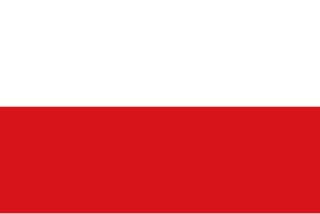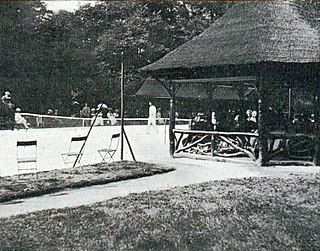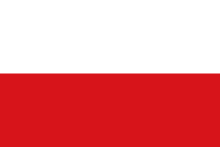
The 1900 Summer Olympics, today officially known as the Games of the II Olympiad and also known as Paris 1900, were an international multi-sport event that took place in Paris, France, from 14 May to 28 October 1900. No opening or closing ceremonies were held.
At the 1900 Summer Olympics, twenty-three athletics events were contested. Altogether, 117 athletes from 15 nations competed. A total of 68 medals were awarded. In many countries, due in part to the conflation of the Olympic Games and the World's Fair in Paris, the media discussed only the athletics events under the "Olympic" name while ignoring the incredible variety of other sports featured at the time.

The 1936 Summer Olympics, officially known as the Games of the XI Olympiad, was an international multi-sport event held in Berlin, Germany, from 1 August to 16 August.
The 1900 Summer Olympics were held in Paris, France, from May 14 to October 28, 1900, as part of the 1900 World's Fair.

Archery had its debut at the 1900 Summer Olympics and has been contested in 16 Olympiads. Eighty-four nations have competed in the Olympic archery events, with France appearing the most often at 31 times. The most noticeable trend has been the excellence of South Korean archers, who have won 27 out of 39 gold medals in events since 1984. It is governed by the World Archery Federation. Recurve archery is the only discipline of archery featured at the Olympic Games. Archery is also an event at the Summer Paralympics.

Australia has sent athletes to all editions of the modern Olympic Games. Australia has competed in every Summer Olympic Games, as well as every Winter Olympics except 1924–32 and 1948. In 1908 and 1912 Australia competed with New Zealand under the name Australasia.

Australia competed at the 1896 Summer Olympics in Athens, Greece, from 6 to 15 April 1896. One athlete from Victoria, a British colony which later formed part of Australia, competed at the 1896 Summer Olympics in Athens, Greece. Edwin Flack was born in England and was resident in London in 1896, but spent most of his life in Australia and so is considered an Australian athlete by the International Olympic Committee.

Germany competed at the 1896 Summer Olympics in Athens, Greece. The Germans were the third most successful nation in terms of both gold medals and total medals (13). Gymnastics was the sport in which Germany excelled. The German team had 19 athletes. The Germans had 75 entries in 26 events, taking 13 medals.

Ten athletes from the United Kingdom of Great Britain and Ireland competed in seven sports at the 1896 Summer Olympics. The Great Britain athletes were the fifth most successful in terms of overall medals (7) and tied for fifth in gold medals (2). The 7 medals came on 23 entries in 14 events.

France was the host of the 1900 Summer Olympics in Paris. France was one of many nations that had competed in the 1896 Summer Olympics in Greece and had returned to compete at the 1900 Games.

Belgium competed at the 1900 Summer Olympics in Paris, France. It was the first appearance of the European nation. Belgium was represented in France by 78 athletes, all of them male, who competed in 11 disciplines. They comprised 95 entries in 28 events.

The United Kingdom of Great Britain and Ireland competed as Great Britain at the 1900 Summer Olympics in Paris, France. It was the second appearance of Britain after having participated in the inaugural 1896 Games. In Olympic competition, the nation has always shortened its official name to Great Britain rather than the United Kingdom seen elsewhere.

Australia competed at the 1900 Summer Olympics in Paris, France. Most Olympic historians keep Australian records at early Olympics separate from those of the United Kingdom despite Australia's lack of independence at the time.

Athletes from the United Kingdom, all but three of its Overseas Territories, and the three Crown Dependencies, can compete in the Olympic Games as part of Team GB. Athletes from Northern Ireland can elect to represent either the UK or 'Team Ireland'. It has sent athletes to every Summer and Winter Games, since the start of the Olympics' modern era in 1896, including the 1980 Summer Olympics, which were boycotted by a number of other Western nations. From 1896 to 2020 inclusive, Great Britain & Northern Ireland has won 918 medals at the Summer Olympic Games, and another 32 at the Winter Olympic Games. It is the only national team to have won at least one gold medal at every Summer Games, lying third globally in the winning of total medals, surpassed only by the United States and the former Soviet Union.

Athletes from Germany (GER) have appeared in 27 of the 30 Summer Olympic Games, having competed in all Games except those of 1920, 1924 and 1948, when they were not permitted to do so. Germany has hosted the Summer Olympic Games twice; the 1936 Games in Berlin, and the 1972 Games in Munich.

The modern Olympic Games were founded by French historian Pierre de Coubertin. France has competed in every edition, with the possible exception of the 1904 Games.

The Kingdom of Bohemia, an autonomous part of Austria-Hungary until 1918, competed at some of the early modern Olympic Games. The team made its debut at the 1900 Summer Olympics. After World War I, Bohemia became part of the new Czechoslovakia, and Bohemian athletes competed for Czechoslovakia at the Olympics. After the 1992 Summer Olympics and the dissolution of Czechoslovakia into the Czech Republic and Slovakia in 1993, Bohemian athletes competed for the Czech Republic at the Olympics. If these post-war appearances are counted, Bohemia has missed only three Olympics: the inaugural 1896 Summer Olympics, the 1904 Summer Olympics and as Czechoslovakia, the 1984 Summer Olympics which were boycotted by the USSR and its satellites.

The all-time medal table for all Olympic Games from 1896 to 2022, including Summer Olympic Games, Winter Olympic Games, and a combined total of both, is tabulated below. These Olympic medal counts do not include the 1906 Intercalated Games which are no longer recognized by the International Olympic Committee (IOC) as official Games. The IOC itself does not publish all-time tables, and publishes unofficial tables only per single Games. This table was thus compiled by adding up single entries from the IOC database.

The mixed doubles was an event on the Tennis at the 1900 Summer Olympics program in Paris. It was held from 6 to 11 July at the Île de Puteaux. There were 12 competitors from 4 nations, with 3 of the teams being mixed teams. The event was won by British pair Charlotte Cooper and Reginald Doherty. The other three medals were taken by the three mixed teams: Hélène Prévost of France and Harold Mahony of Great Britain earned silver, while the bronze medals went to the Bohemian/British combination of Hedwiga Rosenbaumová and Archibald Warden and the American/British pair of Marion Jones and Laurence Doherty. All 5 of the British players thus ended up receiving a medal.

Early modern Olympic Games allowed for individuals in a team to be from different nations. The International Olympic Committee (IOC) grouped their results together under the mixed team designation. A total of 25 medals were won by mixed teams in the first three modern Games, from 1896 to 1904.













